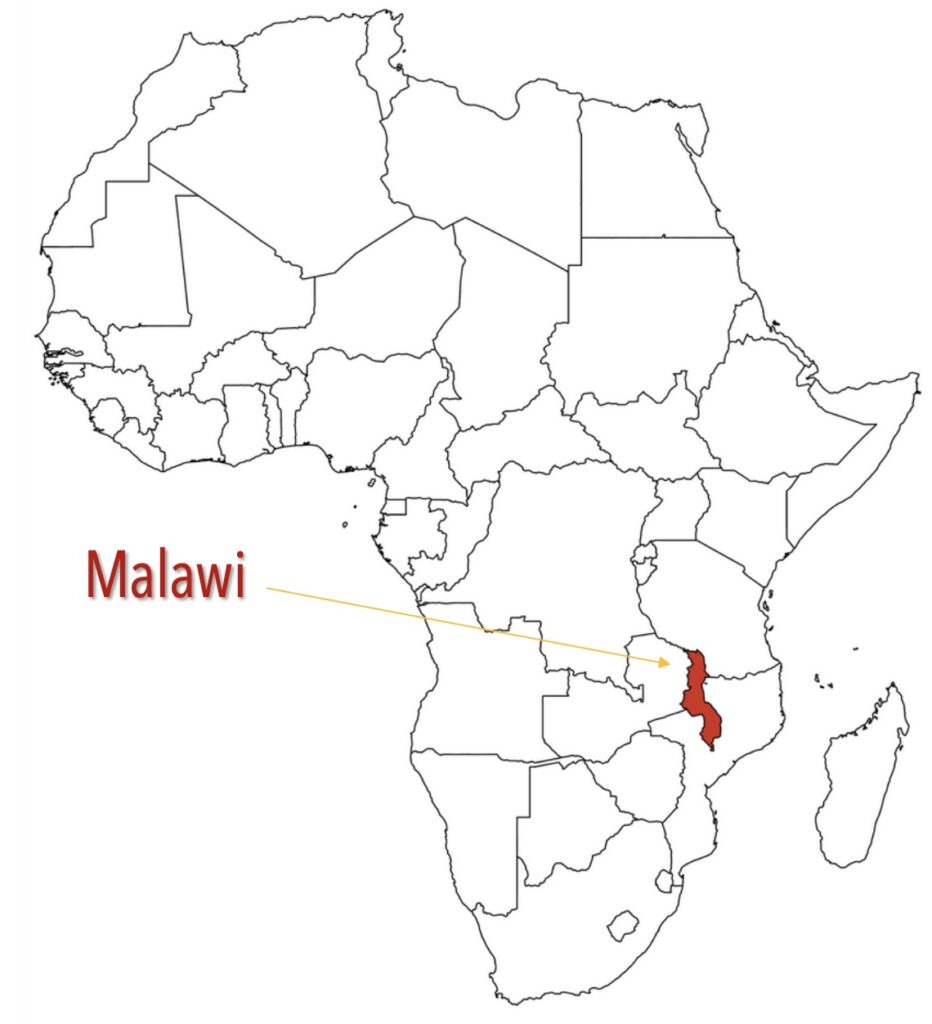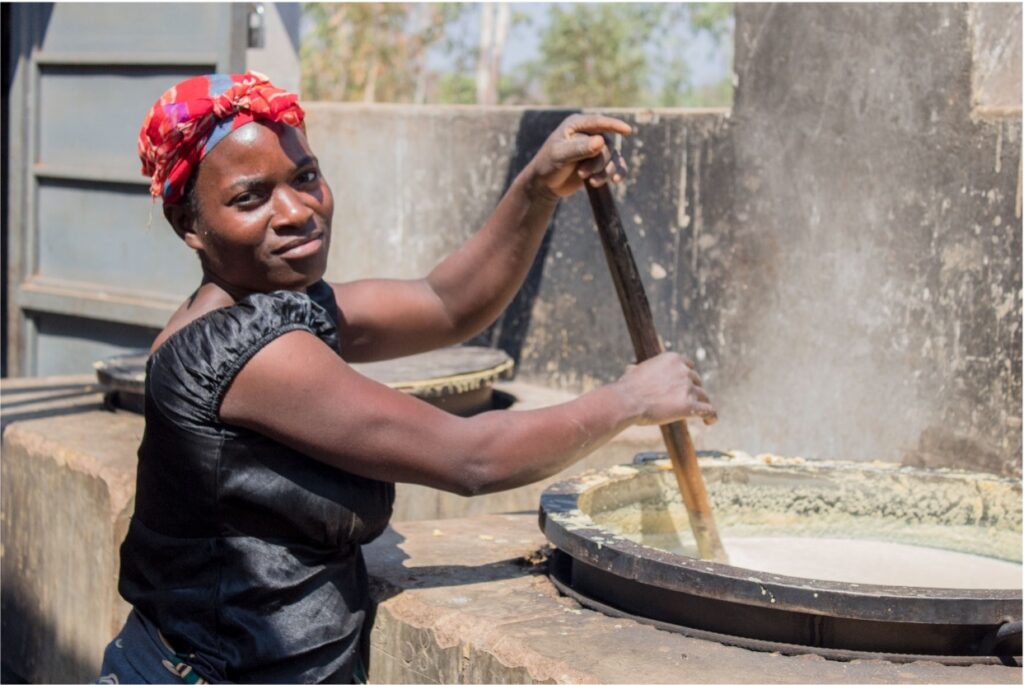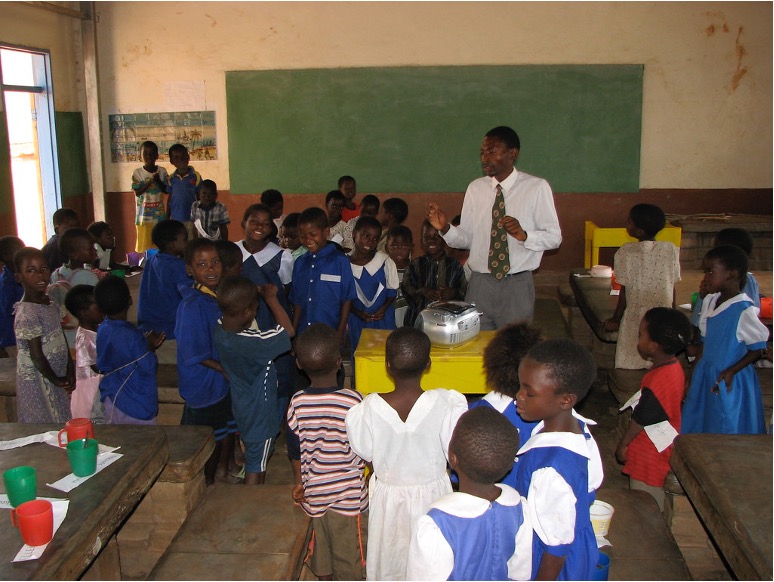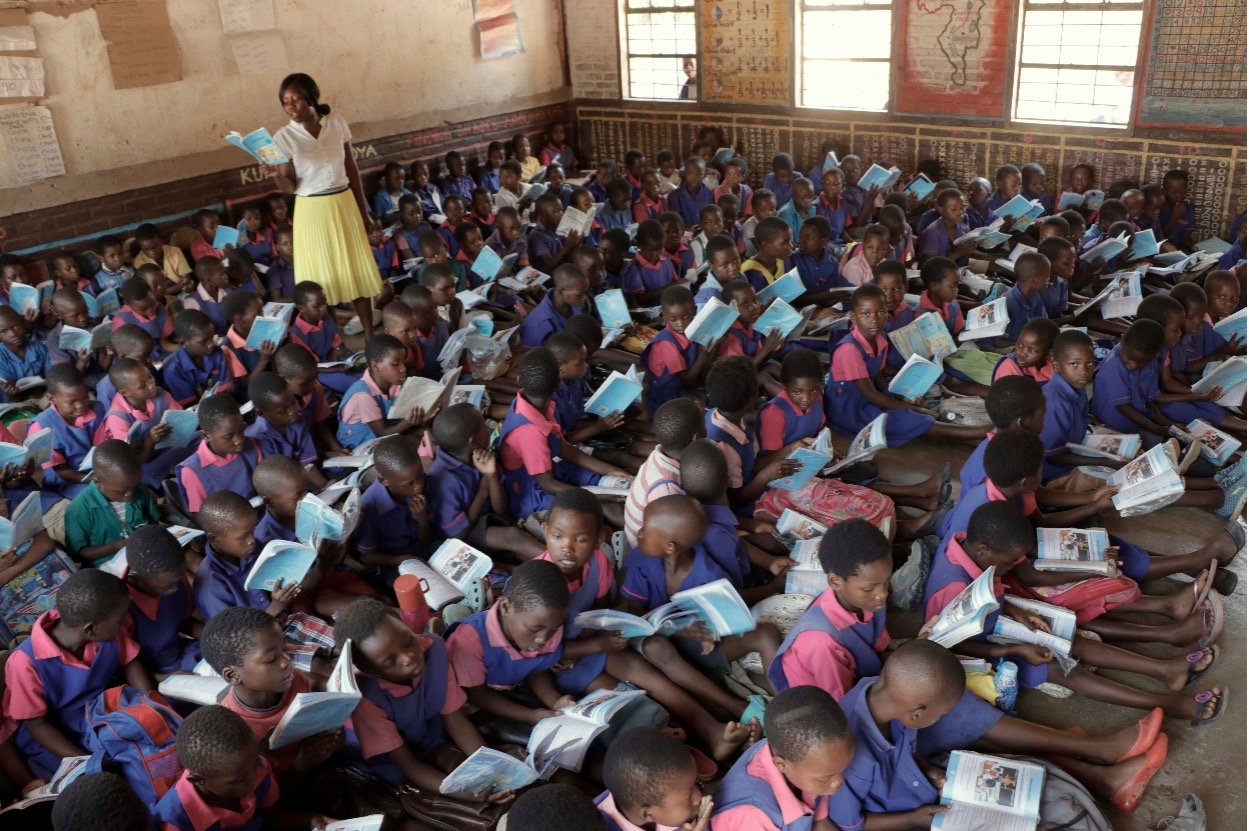By Annie Shaba
May 14, 2024

One hot afternoon in Malawi, a small country in Southeast Africa, I vividly remember saying these words: “Aunt Esther, take the boys out somewhere. I need the house to be quiet and peaceful.” The day was very important to me. I had an interview with the Program Leader for the Foundations of Education department at Virginia Tech, Dr. Marcus Weaver-Hightower, and the Director of the Center for Rural Education, Dr. Amy Price Azano. This was a very important interview for me; I had prepared for many days and I was extremely nervous. It was part of my application to study for a PhD in Curriculum and Instruction at Virginia Tech. Our conversation went well, to say the least. I just completed my first year as a doctoral student.
Being a PhD student was a dream come true: a far-fetched dream. Why do I say so? I remember how I started my education journey as a four-year-old, in small town called Mzuzu, in Northern Malawi. I’m the firstborn in a family of three girls. My mother was a primary school teacher, working at a school that was owned by a Presbyterian church but run by the government. At the time, she did not have anyone to look after me while she taught, so she took me with her. She put me in the first grade to keep me occupied until she could take me back home at the end of her shift.
I spent the required eight years in primary school and four years in secondary school. I’m glad to say I never repeated a class. Repeating a class is very common occurrence for Malawian children, especially girls, and sometimes can lead to students dropping out of school. Years later, I graduated with a Bachelor’s degree in Education from Mzuzu University in Malawi and, later still, a Master’s degree in International Education and Development from the University of Sussex in England. I count myself very lucky because for most girls in Malawi, this level of educational attainment is out of reach.
Rural Education in Malawi
During my first year at Virginia Tech, I have met many wonderful and supportive people. As one of my projects for my graduate assistantship at the Center for Rural Education, I wanted to provide local schoolchildren with the opportunity to learn about different cultures and education systems around the world, so I began visiting schools and teaching about Malawi. Apart from the stark economic differences I noticed between the local schools and those in Malawi, it was interesting to listen to the kids’ questions, which were focused more on the school day than about what the Malawian kids have and don’t have. Some of the questions students asked were:
- How long do they have to walk to get to school?
- Do they get recess? How long is their recess?
- How far can they go from the school during recess?
- Why do they all wear the same clothes?
To answer these questions, let’s take a look at rural education in Malawi. There, rural kids have to walk very long distances to get to school. This is because there aren’t enough schools around. Sadly, almost half of the children who begin first grade, which is called Standard One in Malawi, don’t finish the final class of primary school. The rural schools have the highest dropout rate, with more girls dropping out of school than boys. The distance and the not-so-immediate benefits of schooling just can’t compete with things that bring immediate returns such as menial jobs and marriages.

If you were to visit a rural primary school in Malawi, you would find large classrooms with over 80 learners working with one teacher. Sometimes, in the most remote places, a whole school is run by just one or two teachers. The large teacher-pupil ratio is a big hindrance to education of rural learners because the teacher is not able to pay attention to individual learners’ needs.
Most classrooms are made from burnt brick, but it is not unusual to find makeshift classrooms made out of dried grass. Sometimes classes are held under tree sheds. In harsh weather conditions such as rain or cold, school is usually canceled.
Learners in Malawi wear school uniforms. Though the purpose of school uniforms is to show equality, with rich and poor students all dressing the same, they can sometimes create an additional barrier to education. Some parents struggle to afford the school uniforms, and some learners have to stay out of school because they don’t have one.


In an effort to equalize education, the Malawian government has innovated the provision and use of radio lessons. Every school day, students in primary schools across the country tune in to radio broadcasts where they listen to and interact with a radio teacher. The classroom teacher manages the learning environment while the radio teacher teaches. This gives learners the chance to experience 30 minutes’ worth of math, reading, and writing lessons from a qualified teacher. I’m proud to say that I was part of the group that launched and reviewed this program.
Now back to the reason why I’m here. I believe rural schools have unique problems that require unique solutions. With my studies and research at Virginia Tech, I hope to advocate for rural learners and their teachers in Malawi and elsewhere. In the coming years, I aim to immerse myself in research that exposes the inequalities and insufficiencies that exist in rural schools so that I can continue being part of a positive change.

Annie Shaba will soon begin her second year as a doctoral student in the Foundations of Education department and a graduate assistant with the Virginia Tech Center for Rural Education. She lives in Blacksburg with her husband and two young sons. During the 2024–2025 school year, Annie will be available to give presentations about Malawi to local schools. Please contact Deirdre Hand, our community engagement specialist, at dhand08@vt.edu for more details.




